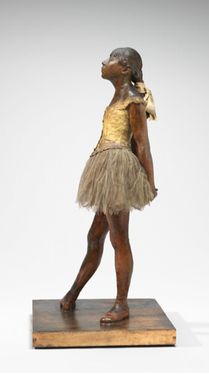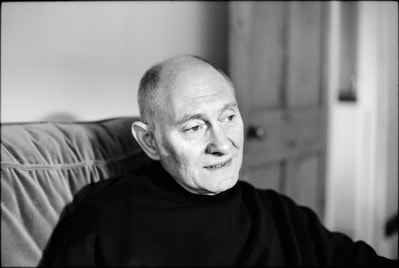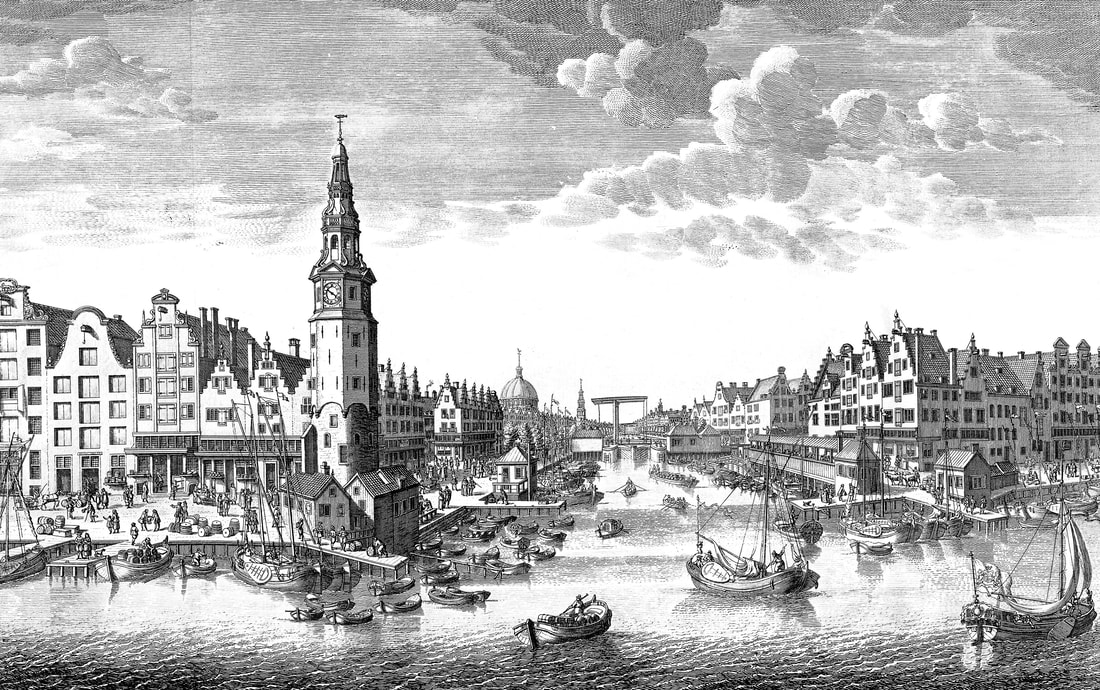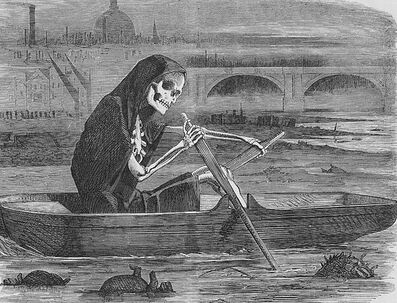Prize-winning poems
Kalashnikov
I am promiscuous and unashamed.
My lovers take me to cool rooms
where I’m stroked by many hands.
I live secretly in the suburbs,
pampered and spared ordinary chores.
My lovers trust me not to let them down.
I sleep in strange places: on floors
of what were once apartment blocks,
amid rubble on the street
cradled in rough arms waiting for daybreak.
I’ve lain with the corpse of a boy
in the back of a burnt-out truck.
The touch of sweat is all my lovers leave.
At night they are led to empty cellars
where they give their bodies to pain.
I’ve seen them kneel in narrow alleys
murmuring, as though at prayer.
Such yearnings even I can’t satisfy.
One afternoon, on a hillside
I was brought to a fresh grave in the rain.
People were mourning a name
I’d hardly known: a one-night stand.
It’s at such times I laugh. Head raised,
I cackle at the heavens. I feel no loss.
First prize Cardiff International Poetry Competition 2000
Published in:
Banquet in the Hall of Happiness (Southword)
The Irish Examiner
New Welsh Review
From the City to the Saltings anthology (Poetry in Practice)
Literature Wales website
I am promiscuous and unashamed.
My lovers take me to cool rooms
where I’m stroked by many hands.
I live secretly in the suburbs,
pampered and spared ordinary chores.
My lovers trust me not to let them down.
I sleep in strange places: on floors
of what were once apartment blocks,
amid rubble on the street
cradled in rough arms waiting for daybreak.
I’ve lain with the corpse of a boy
in the back of a burnt-out truck.
The touch of sweat is all my lovers leave.
At night they are led to empty cellars
where they give their bodies to pain.
I’ve seen them kneel in narrow alleys
murmuring, as though at prayer.
Such yearnings even I can’t satisfy.
One afternoon, on a hillside
I was brought to a fresh grave in the rain.
People were mourning a name
I’d hardly known: a one-night stand.
It’s at such times I laugh. Head raised,
I cackle at the heavens. I feel no loss.
First prize Cardiff International Poetry Competition 2000
Published in:
Banquet in the Hall of Happiness (Southword)
The Irish Examiner
New Welsh Review
From the City to the Saltings anthology (Poetry in Practice)
Literature Wales website
 Courtesy National Gallery of Art, Washington
Courtesy National Gallery of Art, Washington
Dancing for Monsieur Degas
You didn’t see the blisters
on my heels,
blood in my ballet shoes,
or later, my body shaking
as I coughed
in a tenement bed,
the rented rooms where I
unlaced
to the glint of a monocle,
stroked beards browned
by tobacco
and breathed sour absinthe,
or when I slipped a wallet
in the tuck
of my skirts, the alleys
where I grazed my back
against the wall
when the top hats stayed away.
To you I was just a girl
from the opera,
a face to shape, a posture.
You tied a green ribbon
in my hair
and called me your daughter,
and though I was a dancer,
you made me
so I never moved another step.
First prize Wigtown Poetry Competition 2008-9
Published in:
Waiting to Tango (Templar)
The Scotsman newspaper
Tokens for the Foundlings anthology (Seren)
Wigtown competition anthology (Roncadora Press)
Letters from Manuela
Manuela Sáenz, 19th century South American revolutionary and intimate of Simón Bolívar,
ended her days exiled in Peru earning money translating love-letters for American whalers
They come to her cottage
by the harbour
to compose confessions,
men adrift
with tattooed hearts.
At the parlour table
she interprets talk
only a lover should hear,
thoughts she, too,
might have sent
at one time in this life.
For a coin in her palm
each client can buy
a voyage of hope,
boys from the north
who’ll not see home
until their beards are full,
older men
with sailcloth faces,
watching the mystery
of pen on page,
handing her letters
from one-night wives,
paper worn so thin
the pieces fall apart
in her fingers,
ink rubbed to a fog,
ghost words
the writer
has long forgotten.
Joint second prize Keats-Shelley awards 2021
Published in The Keats-Shelley Review
You didn’t see the blisters
on my heels,
blood in my ballet shoes,
or later, my body shaking
as I coughed
in a tenement bed,
the rented rooms where I
unlaced
to the glint of a monocle,
stroked beards browned
by tobacco
and breathed sour absinthe,
or when I slipped a wallet
in the tuck
of my skirts, the alleys
where I grazed my back
against the wall
when the top hats stayed away.
To you I was just a girl
from the opera,
a face to shape, a posture.
You tied a green ribbon
in my hair
and called me your daughter,
and though I was a dancer,
you made me
so I never moved another step.
First prize Wigtown Poetry Competition 2008-9
Published in:
Waiting to Tango (Templar)
The Scotsman newspaper
Tokens for the Foundlings anthology (Seren)
Wigtown competition anthology (Roncadora Press)
Letters from Manuela
Manuela Sáenz, 19th century South American revolutionary and intimate of Simón Bolívar,
ended her days exiled in Peru earning money translating love-letters for American whalers
They come to her cottage
by the harbour
to compose confessions,
men adrift
with tattooed hearts.
At the parlour table
she interprets talk
only a lover should hear,
thoughts she, too,
might have sent
at one time in this life.
For a coin in her palm
each client can buy
a voyage of hope,
boys from the north
who’ll not see home
until their beards are full,
older men
with sailcloth faces,
watching the mystery
of pen on page,
handing her letters
from one-night wives,
paper worn so thin
the pieces fall apart
in her fingers,
ink rubbed to a fog,
ghost words
the writer
has long forgotten.
Joint second prize Keats-Shelley awards 2021
Published in The Keats-Shelley Review
Meyndert Hobbema Measures the Density of Rhenish
Seventeenth-century Dutch landscape artist Meyndert Hobbema produced few known works
after he was 30 when he married and took a post as an Amsterdam wine gauger
The children sleep in the half-light
as I leave the house.
The girl is raking the hearth
to heat milk.
Upstairs my brushes sit dry
in their pots. My past
hangs on unknown walls,
lost as florins.
Lanterns on the bridge flicker
as a cart crosses
with cabbages and black beet.
Outside the city
fields are ploughed, trees
cling to their leaves,
cattle gather by dykes,
a mill wheel turns.
I wrap the cloak round my shoulders
and hurry with my bag
of callipers and rods, my tally book
of day payments.
Casks, unloaded from boats,
wait on the quayside:
Burgundy and Rhine wine
for tables of the Herengracht.
Streets behind the Plaetse are quiet
at this hour, the women
resting, their business done
as mine begins.
Already masons’ chisels
are at work on the tower
of the high Kerk, carving faces
that no-one will see.
Second prize Peterloo Open Poetry Competition 2008
Finalist: Aesthetica Creative Works Competition 2010
Published in:
Waiting to Tango (Templar)
Peterloo Poetry Competition Anthology
The New Writer and Aesthetica Creative Works Annual 2011
after he was 30 when he married and took a post as an Amsterdam wine gauger
The children sleep in the half-light
as I leave the house.
The girl is raking the hearth
to heat milk.
Upstairs my brushes sit dry
in their pots. My past
hangs on unknown walls,
lost as florins.
Lanterns on the bridge flicker
as a cart crosses
with cabbages and black beet.
Outside the city
fields are ploughed, trees
cling to their leaves,
cattle gather by dykes,
a mill wheel turns.
I wrap the cloak round my shoulders
and hurry with my bag
of callipers and rods, my tally book
of day payments.
Casks, unloaded from boats,
wait on the quayside:
Burgundy and Rhine wine
for tables of the Herengracht.
Streets behind the Plaetse are quiet
at this hour, the women
resting, their business done
as mine begins.
Already masons’ chisels
are at work on the tower
of the high Kerk, carving faces
that no-one will see.
Second prize Peterloo Open Poetry Competition 2008
Finalist: Aesthetica Creative Works Competition 2010
Published in:
Waiting to Tango (Templar)
Peterloo Poetry Competition Anthology
The New Writer and Aesthetica Creative Works Annual 2011
Five Hundred Cuts
Between 1737 and 1739 British botanical artist Elizabeth Blackwell produced her book
‘A Curious Herbal’ in weekly parts containing 500 engravings of medicinal plants
with text supplied by her husband from his cell in a debtors’ prison
The Physick Garden is at its best now,
much visited by sparrow and field moth.
Most mornings I sketch after breakfast,
dressing the plants with honest colours,
the bitter red of a love-apple, white
of the opium poppy, so sweet an anodyne
when the seed pods ripen, St John's wort,
its flowers a most delicate yellow,
a tincture of which, in spirit of wine,
is commended against Melancholy & Madness.
Often the curator and his wife take the air,
his arm around her comely waist.
Today they stopped to untangle a quince
and she plucked him a head of honeysuckle.
What pretty cure-alls to furnish
an apothecary's box, seeds bred
for crushing, stems for bruising,
petals to be drained of their scents
for the purging of fevers and pleurisies.
Balms and balsams deck the hedgerows,
but none that can soothe these hours.
Each noonday, on return to my lodgings,
I pass a bank grown thick with nettles
and remember the description you sent:
the juice is thought good
for all kinds of inward bleedings.
Would that this were medicine enough
to bring relief, or quicken the passing.
I work late now the days are long
till the room is draped with shadow
and I mourn the loss of line. It’s then
that I picture a candle on a table,
a closed casement with no moon,
your quill busy tending its own garden.
Time, perhaps, to refresh my lamp.
I have drawings to finish, plates to engrave,
pages to prepare for printing, pairings
once made that have no unmaking:
chicory and camomile, dandelion and clove.
Tomorrow, as always, I’ll be up at first light
to go down to the coachman. I want your words
for lady's thistle, the chaste tree, the wild rose.
Third prize Cardiff International Poetry Competition 2007
Published in:
Waiting to Tango (Templar)
New Welsh Review
The New Writer
Literature Wales website
Coffee Shop
Most evenings
he comes in
about this time.
Espresso,
cigarette,
an intelligent paper.
A seat
by the window,
facing in.
Jeans, jumper
and black brogues.
I like those.
I wipe the table,
sometimes twice.
When I lean over
with his cup
my apron tightens,
just a touch.
Most evenings
he comes in
about this time.
I always think
he won’t.
And then he does.
Second prize Dulwich Festival Poetry Competition 1998
Published in:
Banquet in the Hall of Happiness (Southword)
The Honey Gatherers anthology (Bloodaxe)
Teaching a Chicken to Swim anthology (Seren)
Most evenings
he comes in
about this time.
Espresso,
cigarette,
an intelligent paper.
A seat
by the window,
facing in.
Jeans, jumper
and black brogues.
I like those.
I wipe the table,
sometimes twice.
When I lean over
with his cup
my apron tightens,
just a touch.
Most evenings
he comes in
about this time.
I always think
he won’t.
And then he does.
Second prize Dulwich Festival Poetry Competition 1998
Published in:
Banquet in the Hall of Happiness (Southword)
The Honey Gatherers anthology (Bloodaxe)
Teaching a Chicken to Swim anthology (Seren)
Stradivari Crafts a Requiem
Down in the storeroom
the boy is cutting
a length of maple
with a grain most modest,
perfect for the curve
of this viola.
Saw strokes fill the sound-box
of the stairway,
curling round flutes
on the banister rail,
drawn between the panels
of raw pine.
This house speaks
through its timbers:
wind in the attic beams at night,
the bedframe’s quiet pains.
For a moment then I thought
a floorboard creaked:
my dear Francesca
bringing meats, a jug of wine,
up to my workbench,
a basket of herbs
to dry on the roof.
To imagine sound
in empty space
is what old Amati taught me,
to hold an instrument
in the making
and know its tone.
Commended in the McLellan Poetry Competition 2014
Published in Waiting to Tango (Templar)
Isle of Arran Theatre and Arts Trust website
Lise Meitner Leaves Berlin
Born into a Viennese Jewish family, physicist Lise Meitner was, with
Nobel laureate Otto Hahn, in the vanguard of German nuclear
research before she fled the country in 1938
I’m taking off my lab coat
for the last time.
Each piece of apparatus stands in place:
cloud chamber, electrometer,
a web of wires to trap lightning.
Today I’m saying goodbye
to 'Frau Professor',
the Jewess with the worthless brain.
Tomorrow I’ll leave my flat
with nothing but a jacket,
an address in Holland
I might never find.
For too long, Otto, I’ve worn the white
of this sanctuary for science,
possessed, like you, by the prize,
my head filled with atoms.
Do we know, even now,
what demons’ eyes we’ve lit?
One neutron and a chain reaction,
one word to turn a crowd
and shatter the world.
When I could take the tram home
I’d see young women in the Tiergarten
pushing prams,
boys chasing round trees
waving wooden guns,
girls with ropes,
men reading newspapers.
Even then I could guess the headlines.
They say Vienna waltzed after the Anschluss.
Everywhere people are dancing
to the music of broken glass.
I’m saying good night, Otto.
My lab coat hangs lifeless
behind the door,
notes on my workbench
a muddled epitaph,
the electrometer’s needle
back to zero.
Shortlisted in the Montreal International Poetry Prize 2011
Published in:
Waiting to Tango (Templar)
Global Poetry Anthology (Véhicule Press)
Under London
Joseph Bazalgette, Victorian civil engineer
and builder of the city’s sewerage network
As the lid closes
on Hammersmith Road,
muffling the crunch
of brewers’ carts,
stifling shouts
from laundry windows,
he follows Mr Peters
down the manhole ladder
into the sour breath
of the weir chamber
at Counter’s Creek.
Come April,
with the conduits open,
he’d be up to the top
of his boots in foul water,
but, for now,
the tunnels serve
as quiet caves,
the Fleet and Tyburn
funnelled
under cobbled alleys,
carrying sediments
of hillside streams
that once washed London’s vales
before the Silent Highwayman
sailed down with the tide,
swathed in a fog of cholera.
Here, away from daylight,
he finds an hour’s shelter
from the storms of Westminster
that have stripped
so many nights of sleep,
functionaries who say
he’s draining
the nation’s cash to the sea.
Through the flickering
of Mr Peters’ lamp
he surveys brick arches,
a raised iron gate,
while a maze of junctions
crowd his head,
months when contours blurred
as he mapped these veins,
outflows that can take a surge
like blood to the brain,
days when he loosened
his collar to breathe,
crushed by the city’s weight.
Included in Plainsong (Broken Sleep Books)
Commended in the Poetry London Clore Prize 2018
and published on the Poetry London website
poetrylondon.co.uk/under-london-by-victor-tapner/
Joseph Bazalgette, Victorian civil engineer
and builder of the city’s sewerage network
As the lid closes
on Hammersmith Road,
muffling the crunch
of brewers’ carts,
stifling shouts
from laundry windows,
he follows Mr Peters
down the manhole ladder
into the sour breath
of the weir chamber
at Counter’s Creek.
Come April,
with the conduits open,
he’d be up to the top
of his boots in foul water,
but, for now,
the tunnels serve
as quiet caves,
the Fleet and Tyburn
funnelled
under cobbled alleys,
carrying sediments
of hillside streams
that once washed London’s vales
before the Silent Highwayman
sailed down with the tide,
swathed in a fog of cholera.
Here, away from daylight,
he finds an hour’s shelter
from the storms of Westminster
that have stripped
so many nights of sleep,
functionaries who say
he’s draining
the nation’s cash to the sea.
Through the flickering
of Mr Peters’ lamp
he surveys brick arches,
a raised iron gate,
while a maze of junctions
crowd his head,
months when contours blurred
as he mapped these veins,
outflows that can take a surge
like blood to the brain,
days when he loosened
his collar to breathe,
crushed by the city’s weight.
Included in Plainsong (Broken Sleep Books)
Commended in the Poetry London Clore Prize 2018
and published on the Poetry London website
poetrylondon.co.uk/under-london-by-victor-tapner/


